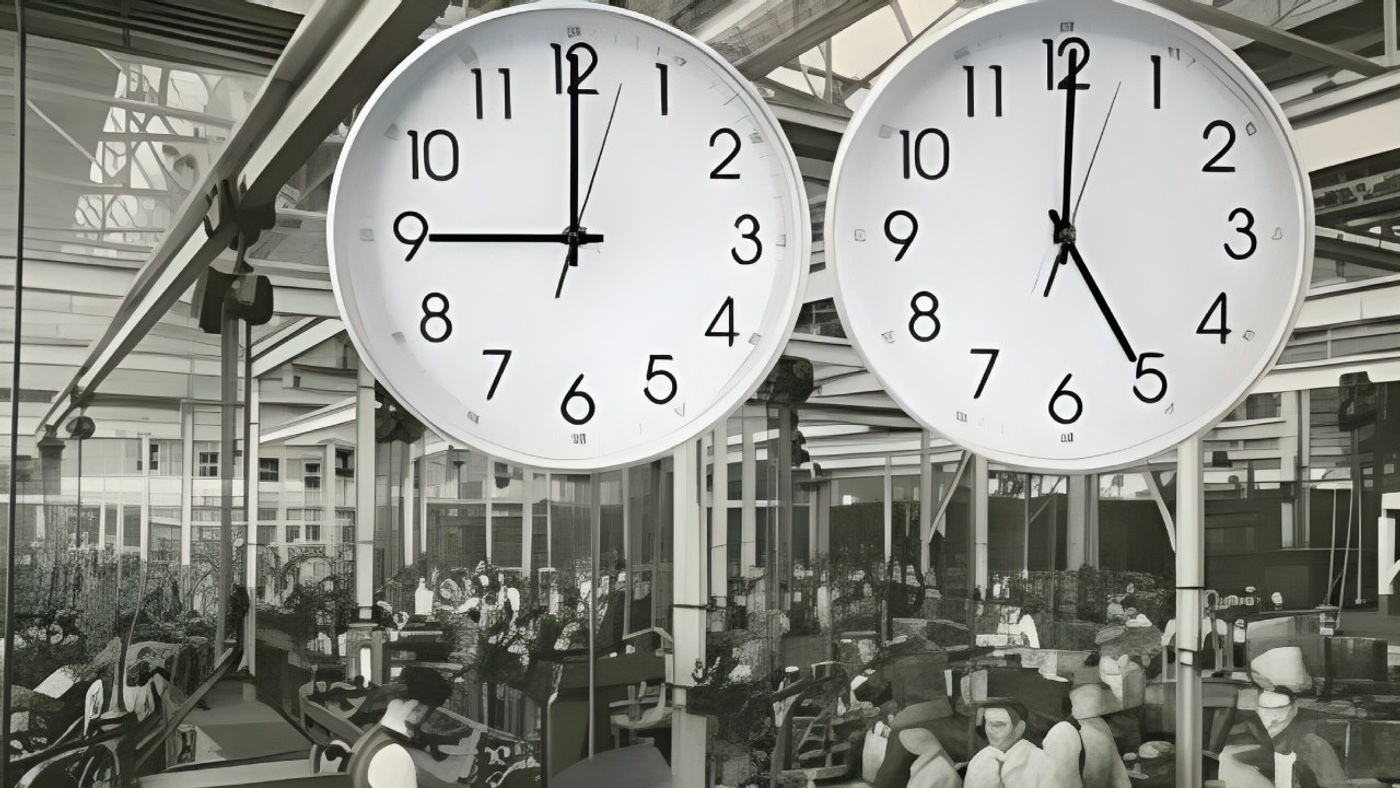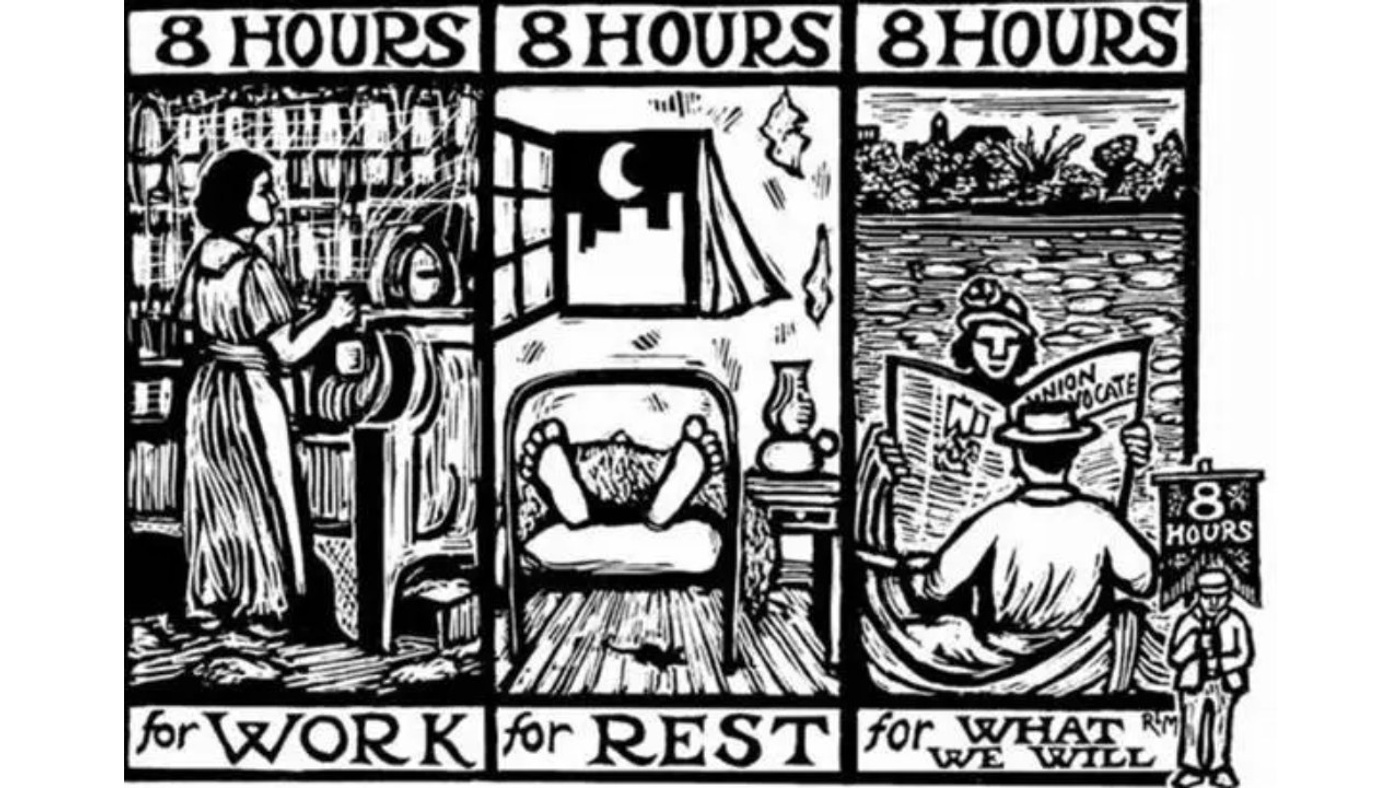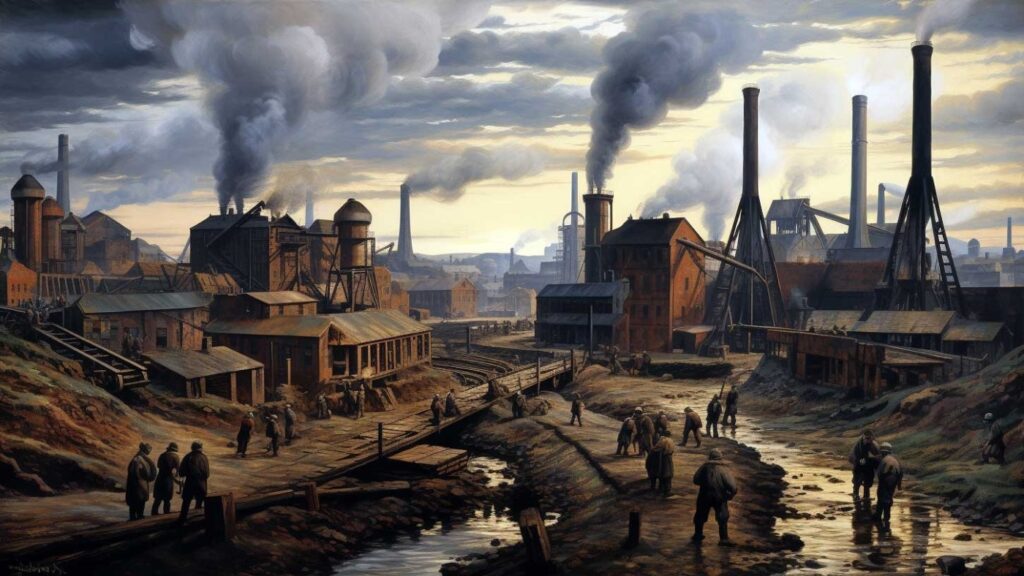Have you ever wondered how our working hours are determined? The question ‘Why 8 hours?’ has been puzzling many since the Industrial Revolution. In 1817, British industrialist Robert Owen laid the foundations of modern working hours. Owen advocated that a day should be divided into three equal parts, proposing that each individual should work for 8 hours, rest for 8 hours, and sleep for 8 hours. This proposal was revolutionary at the time as industrial workers were generally worked much longer hours.
Owen’s idea was implemented in a textile factory in Manchester and soon the factory became the most successful business in the region. Owen’s success caught the attention of other industrialists, but it took many years to gain general acceptance.
Regulations in Working Hours

In 1847, the Ten Hour Act in England limited the working hours of women and young workers to 10 hours per day. However, the idea of an 8-hour workday found more interest in the United States and laid the foundation for May Day, the International Workers’ Day.
The Widespread Adoption of Modern Working Hours

Henry Ford further popularized this concept by standardizing an 8-hour workday in his factories in 1905. Ford’s implementation increased worker productivity and company profits, setting a precedent for other businesses.
Today, the 8-hour work system has become the standard in many countries worldwide. This system plays a significant role in maintaining a balance between work and personal life.
Source: Forbes


